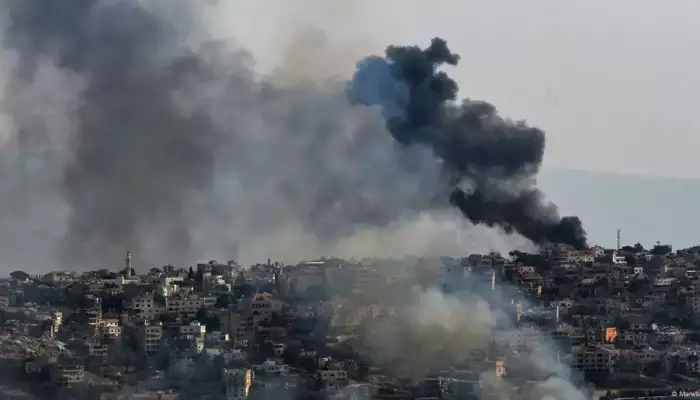
Lebanon's Prime Minister Najib Mikati said in an interview on Wednesday that he was "cautiously optimistic" after talks with US envoy Amos Hochstein about an apparent new push for a cease-fire deal with Israel.
"We are doing our best ... to have a cease-fire within the coming hours or days," Mikati said during a televised interview with Lebanese broadcaster Al-Jadeed.
Hezbollah's newly chosen leader Naim Qassem had also hinted at the possibility of a cease-fire deal in his first speech since taking over on Wednesday.
"If the Israelis decide they want to stop the aggression, we say we accept, but under the conditions that we see as appropriate and suitable," Qassem had said, albeit also saying Hezbollah would not "beg for a cease-fire."
Israeli Energy Minister Eli Cohen had said on Israeli public radio that the country's security cabinet was meeting to discuss what terms it might offer in a bid to secure a truce, but he also said "I think it will still take time."
After talks in the White House with President Joe Biden on Wednesday, Cypriot President Nikos Christodoulides said he was "quite optimistic" that a cease-fire deal for Lebanon could be reached quickly, perhaps within a week or two.
"The most important priority of the international community now is to have a cease-fire in the region," Christodoulides said.
The Cypriot leader, in charge of the EU country closest to Gaza, is visiting the US amid a renewed diplomatic push by the Biden administration, with days to go until elections in the US.
Senior White House officials Brett McGurk and Amos Hochstein were visiting Israel as part of a renewed push for cease-fire deals in both Lebanon and Gaza, White House spokeswoman Karine Jean-Pierre said on Wednesday.
She also said CIA director Bill Burns would head to key negotiator Egypt on Thursday to discuss those efforts.
US officials speaking off-the-record had reportedly outlined details of a potential proposal for a cease-fire between Israel and Lebanon — and their comments appeared to match a draft document published by the Israeli Public Broadcasting Corporation, more commonly known as Kan, on Wednesday.
Core fixtures of this unverified text included a cessation of hostilities, Hezbollah withdrawing from the south of the country and the border area, with only the Lebanese Army and international UNIFIL forces allowed in that area, and the implementation of UN Security Council Resolution 1701, among other things.